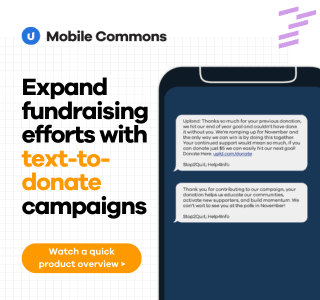As 2015 rolls into summer, it brings with it the usual round of interesting text messaging related news. Here, we’ve compiled three recent stories about SMS that caught our eye about how text messaging is impacting our daily lives.
New report finds that people prefer SMS to Facebook Messenger
 According to a survey run by RingCentral, text messaging is still the most preferred method of instant communication – even compared to Facebook Messenger, which is currently the most popular mobile instant messaging app. The survey commissioned 509 participants to report their mobile phone habits, and found that 72% of participants said that they prefer SMS to messaging apps. 74% of those participants cited ease of use as text messaging’s main appeal, while another 56% pointed to its speed.
According to a survey run by RingCentral, text messaging is still the most preferred method of instant communication – even compared to Facebook Messenger, which is currently the most popular mobile instant messaging app. The survey commissioned 509 participants to report their mobile phone habits, and found that 72% of participants said that they prefer SMS to messaging apps. 74% of those participants cited ease of use as text messaging’s main appeal, while another 56% pointed to its speed.
Besides text messaging’s popularity, the survey also suggested that icon overflow – the phenomenon in which too many mobile apps on a person’s smartphone ends up hindering its efficacy instead of promoting it – is still a growing trend. 42% of survey participants reported that they sometimes felt “communications overload” when having to use multiple apps to check messages every day, while 22% offered a resounding “yes” to the question.
Text message therapy continues to rise in popularity

Previously, we’ve written about how text messaging is revolutionizing the traditional therapist’s office by bringing it directly to your mobile phone at a fraction of the cost. Talkspace, for example, is one of the most popular new text messaging therapy services and charges just $25 a week – a far cry from the average cost of most therapists, whose rates can skyrocket into triple digits for a one hour session.
A new article by the Denver Channel points out that text message therapy is continuing to prove itself as a major contender for providing accessible and affordable mental healthcare. The article highlights a study that found that 67% of healthcare professionals are either already using a form of telemedicine, or plan to do so within a few years. Oren Frank, founder of TalkSpace, describes how a big part of text messaging’s efficacy as a communication channel between therapist and patient is that writing out text messages eliminates certain obstacles in face-to-face therapy. “The first six months you go through face-to-face therapy, you’re busy lying to your therapist, crafting a beautiful persona that you want the therapist to think you’re this great guy,” he says. “That [process] seems to be removed very efficiently and quickly when you do it in writing.”
While text messaging therapy services for adults is fairly new, text messaging as a means of offering mental health support – and saving lives in the process – is not.
DoSomething.org has seen extraordinary results from their work with Crisis Text Line, a 24/7 anonymous SMS hotline which allows teenagers to safely and anonymously text in to receive emotional support from trained counselors. In a day and age where people are both continually on the go with their mobile phones in tow, it’s great to see how text messaging can create opportunities for improved health.
Texas residents can now text in anonymous drug tips to the D.E.A.
 A new text messaging program called “Tip 411” allows Texas residents to anonymously report illicit drug activity to the D.E.A. Anyone who wishes to report drug activity – or wants to report an incident they witnessed that may have possibly involved drug activity – can simply text “RGV” to “TIP 411.” Doing so subscribes the witness to the program, after which the witness can choose to include a picture and/or short written description of the incident. The message is then anonymously delivered to an agent who can take the appropriate required action.
A new text messaging program called “Tip 411” allows Texas residents to anonymously report illicit drug activity to the D.E.A. Anyone who wishes to report drug activity – or wants to report an incident they witnessed that may have possibly involved drug activity – can simply text “RGV” to “TIP 411.” Doing so subscribes the witness to the program, after which the witness can choose to include a picture and/or short written description of the incident. The message is then anonymously delivered to an agent who can take the appropriate required action.
D.E.A. Assistant Special Agent Steve Jenkins hopes that younger people in the community will use the program. “It’s a way if the person is not comfortable with providing us the information….[that] they can give it to us this way,” says Jenkins.
The program takes advantage of two of text messaging’s main features: first, its popularity among young people (who are the program’s target audience), and second, its ability for individuals to provide both full disclosure while also remaining wholly anonymous. Both of these factors should lead to good results for the program.
Thanks for reading this month’s edition of SMS Nation! We hope that you found the stories interesting, inspiring, or some combination of the two. If you have any questions about how text messaging can help your organization, please contact us.

